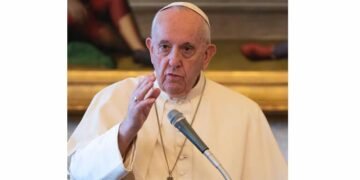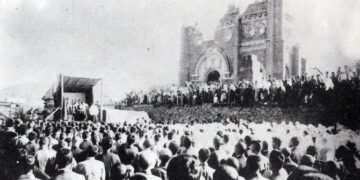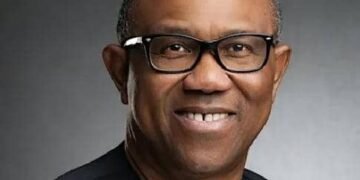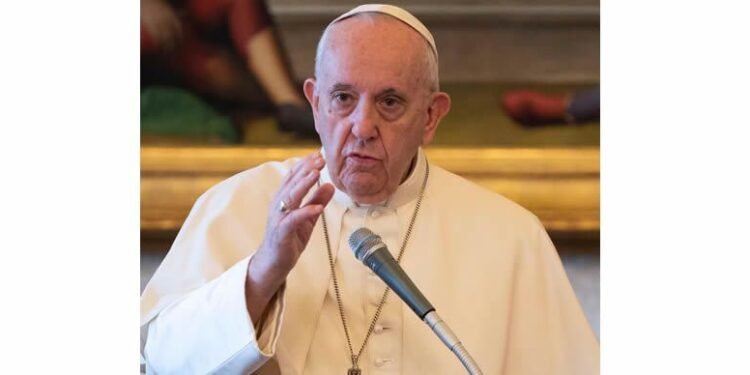On January 15, 2025, the world witnessed a historic moment in the ongoing Israeli-Palestinian conflict, as a ceasefire agreement was announced between Israel and Hamas, signaling an end to the bloodshed in Gaza. This ceasefire, which comes after 15 months of intense violence and devastating humanitarian crises, is poised to bring a semblance of relief to the millions of civilians caught in the crossfire. While the terms of the ceasefire include the gradual withdrawal of Israeli forces and the release of hostages held by Hamas, its broader significance lies in the diplomatic efforts and tireless advocacy that have brought the warring factions to the negotiating table. Among the global leaders who have consistently called for peace, none has been more vocal and persistent than Pope Francis and the Catholic Church.
Pope Francis has made the plight of the Palestinian people and the suffering of all those caught in the violence of Gaza a basis of his papacy. Since the early days of the conflict, the Holy See has used its diplomatic leverage to call for an immediate ceasefire, urging the international community to prioritize human life over political agendas. The Pope’s pleas were not just words; they were supported by active diplomatic engagements, personal appeals, and strategic calls for dialogue. In one of his most impassioned appeals, in April 2024, Pope Francis condemned the indiscriminate violence that had left thousands dead, calling on both parties to cease hostilities and enter into peaceful negotiations. He also expressed profound solidarity with the victims, particularly the children, who have borne the brunt of the conflict, echoing his long-standing advocacy for the sanctity of human life and the protection of civilians. This appeal was not a new stance, but rather part of a larger, consistent push by the Church for peace in the region, deeply rooted in Catholic social teaching.
But the Pope’s advocacy has not remained confined to prayers and public statements. The Vatican’s diplomatic machinery has been activated to facilitate dialogue and reconciliation between the conflicting parties. Behind the scenes, the Holy See has been involved in negotiations and efforts to mediate peace, working alongside international actors like the United Nations, Egypt, and Qatar. Pope Francis has emphasized that dialogue and negotiations, not military force, are the true pathways to peace. He made it clear that the Church would continue to play a role in fostering this dialogue, whether through the intercession of Vatican diplomats or through his own personal interventions.
The Vatican’s role in the ceasefire is particularly notable for its consistent and principled stance on the importance of humanitarian considerations. At the height of the violence, Pope Francis’s calls for ceasefires represented an advocacy for a durable peace that would address the underlying issues, including the dire humanitarian situation in Gaza. The Pope’s compassion extended to the families of hostages, refugees, and the countless individuals displaced by the violence. In one notable instance, Pope Francis’s Vatican delegation worked closely with international agencies to ensure that essential medical supplies and food reached those trapped in Gaza. This is part of the Church’s broader humanitarian mission that transcends the political dimensions of the conflict.
The role of the Catholic Church in promoting peace in Gaza can also be seen through the perspective of its broader social teachings. The Church has long championed the idea of peace through justice. In his writings, Pope Francis has consistently highlighted the importance of addressing the root causes of violence, including poverty, social inequality, and human rights violations. He has consistently advocated for a two-state solution, emphasizing the rights of Palestinians to self-determination and the need for Israel to live in peace and security within recognized borders. The Church’s teachings on social justice have positioned it as a moral voice in global diplomatic efforts, offering a vision of peace grounded not in compromise but in justice and dignity for all people.
While the ceasefire is a moment of hope, it is by no means a resolution to the broader Israeli-Palestinian conflict. The challenges that remain are immense, and this ceasefire agreement is fragile. The road to a lasting peace will require sustained international commitment, continued dialogue, and, most importantly, a change in the hearts and minds of the people involved. However, the agreement marks a significant milestone, and the role of the Catholic Church, led by Pope Francis, cannot be understated in this process. Through his calls for peace, his diplomatic efforts, and his staunch commitment to human dignity, the Pope has been a guiding light in the darkness of this protracted conflict.
As the ceasefire takes effect, it remains to be seen whether it will hold, but one thing is certain: the advocacy of the Catholic Church, particularly through Pope Francis’s leadership, has played a significant role in bringing the warring parties to the negotiating table and has provided a much needed relief for all those yearning for peace in Gaza.











































